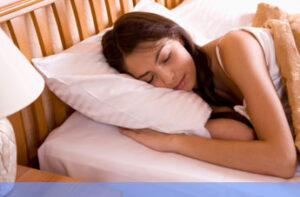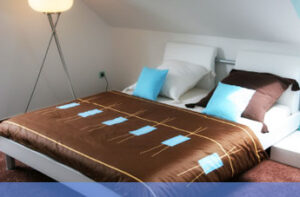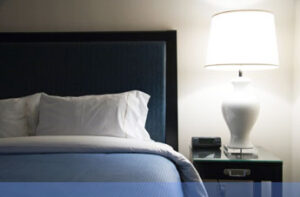WHY DO WE NEED TO SLEEP?
The purpose of sleep is to repair and rejuvenate the body and mind. The energy that we naturally expend on day-time processes such as digestion, movement and thinking gets redirected towards healing and repairing the body whilst we sleep.
We now know that the purpose of dreaming is to discharge emotions, through the use of metaphor and imagery, that weren’t discharged during the day. So if you don’t sleep and/or dream, the emotional charges of yesterday start to stock pile up and carry on and into the day after. No wonder a couple of nights without sleep can leave someone feeling so stressed!
If you have trouble falling asleep, wake up frequently during the night and then have difficulty getting back to sleep or wake up too early, you’re not alone. According to the World Health Organisation (WHO) more than a third of British adults have sleep problems at least a few nights a week and one-quarter of those will be taking prescription sleeping tablets. Research carried out by the British Chiropractic Association (BCA) has placed sleeping and mattresses as one of the top triggers of back pain, with over a quarter of sufferers blaming their beds.
The following top tips ensure you can sleep soundly and safely:
- Your bed shouldn’t be too hard or too soft. If you are lying on your side your spine should be parallel to the mattress and the mattress should not sag (bed too soft) or bow (bed too hard). Your pillow should be an extension of this i.e. your neck should be a continuation of the straight spine (not too high not too low).
- Hard mattresses are not always best – opt for firm but supportive. It is easier to make a hard mattress soft than a soft mattress hard, so if you your mattress is too hard – add an extra blanket or duvet to give yourself a softer surface to lie on.
- Try and adopt a sleeping position, which creates less physical stress on the back (e.g. lying on your side is better than lying on your front with your neck twisted to one side).
- Keep moving and avoid being in any one position for too long (no matter how comfy the position initially; the longer you stay in one position the more this will “load joints”). If your partner moves around a lot at night try separate beds!! Your partner’s movement could aggravate YOUR back condition!
- Drink water and keep well hydrated (dehydration can make muscles ache).
- Remember to turn your mattress regularly this should be done at least every couple of months and will keep your bed in good condition.
DO YOU NEED A NEW BED?
So how do you know if you need to replace your bed? Ask yourself the following questions:
- Is your bed more than eight to ten years old?
- Is it uncomfortable?
- Can you feel the springs beneath the mattress?
- Do you and your partner ‘roll’ into each other?
- Is your mattress torn or discoloured?
Choosing your new bed
- The best bed for your back is not always a firm one – you need a bed that provides the right support and comfort for you. If you are lying on your side your spine should be parallel to the mattress and your spine should not sag (bed too soft) or bow (bed too hard).
- Big is beautiful – buy the biggest bed possible, so you have maximum space to move around. It should be 15cm longer than the tallest sleeper.
- Try, try and try again – put the mattresses through their paces. Lie on each bed you are considering for as long as possible. Some companies will even offer a trial period.
- If you sleep together, shop together – always shop with your partner and consider two separate mattresses on one bed frame if you and your partner are very different in height and weight.
PILLOWS
Your pillow can be as important as your mattress. Your perfect pillow should keep your head in line with the rest of your body and mould to the shape of your head and neck. As shaped pillows can be expensive and even then there is no guarantee that they will be comfortable, we have a selection of pillows to try. Speak to the Receptionists to put your name down for a loan pillow!
SLEEP-INDUCING TIPS
- Foods such as warm milk, turkey, tuna, nuts, bananas, grapefruit, dates and figs are high in the amino acid L-tryptophan, which promotes the production of serotonin, a natural relaxant.
- Avoid eating heavy meals at least two hours prior to going to sleep.
- Exercise does help people sleep better, but make sure you don’t exercise within three hours of sleeping.
- Keep mental stimulation to a minimum in the hours preceding bed-time. If you have something on your mind, write it down, talk about it or go for a walk.
- Don’t go to bed it you feel wide-awake.
- Take a warm bath with lavender oil to unwind before bed-time.
- Keep your bedroom for sleep and intimacy, not for watching TV and lying around.
- Keep your bedroom in complete darkness whilst you sleep
- If you are still awake after twenty minutes of attempting to sleep, get up and do something relaxing or drink a cup of chamomile tea










